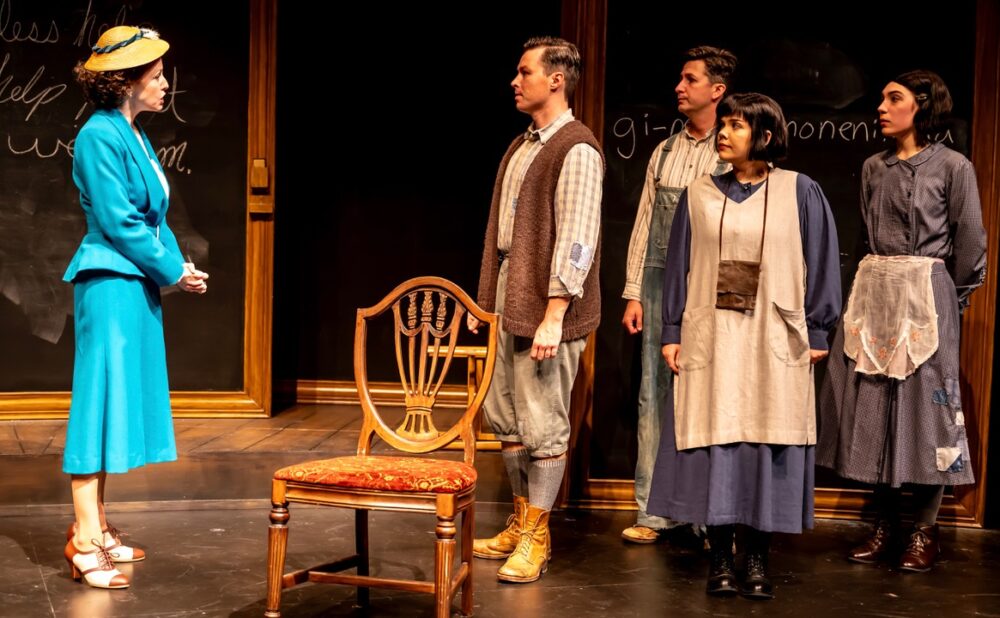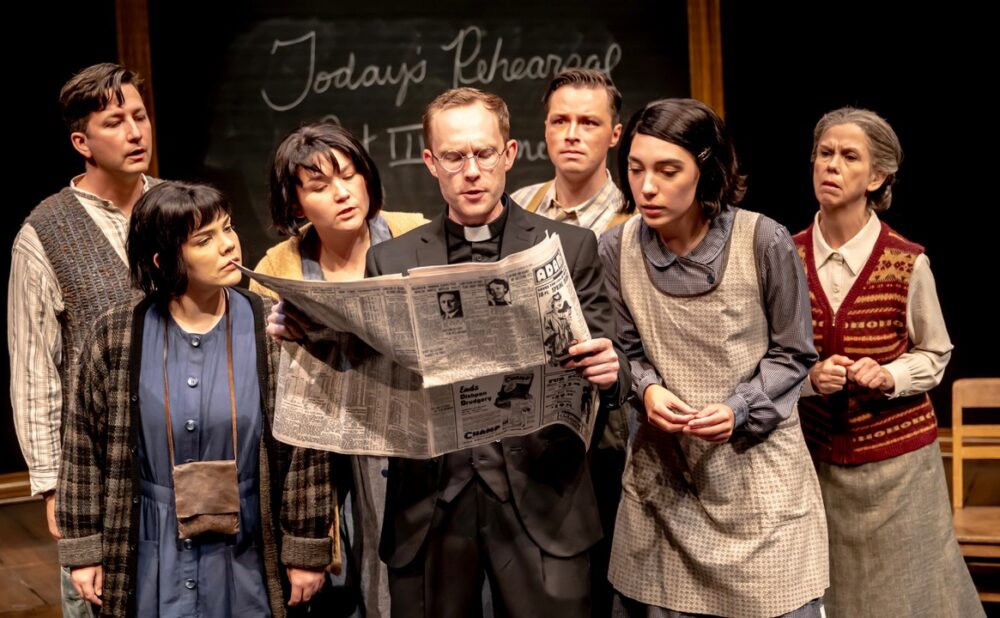Review: Though set in a residential school, Canadian Stage’s ‘1939’ refuses to centre tragedy
Stratford transfer sports unique tone but feels stuck between genres
What: 1939
Where: Berkeley Street Theatre, 26 Berkeley St.
When: Now, until Sat., Oct. 12
Highlight: Joanna Yu’s elegant set of giant chalkboards
Rating: NNN (out of 5)
Why you should go: Director Jani Lauzon’s lucid production is playful and surprisingly breezy.
IF YOU CAN’T make it up to the Stratford Festival to see Salesman in China — Leanna Brodie and Jovanni Sy’s impressive new drama about Arthur Miller putting on Death of a Salesman in Beijing — Toronto is currently playing host to a Stratford transfer tackling similar themes: Jani Lauzon and Kaitlyn Riordan’s 1939, running at the Berkeley Street Theatre in a co-production between Canadian Stage and Belfry Theatre.
The light, unimposing play unfolds at a fictional 20th-century residential school in northern Ontario. When uptight teacher Sian Ap Dafydd (Catherine Fitch) hears the news that King George VI is planning a visit to Canada, she proposes that her small class of Indigenous students put on Shakespeare’s All’s Well That Ends Well.
Sian’s view of Shakespeare performance is traditional to an almost caricatural degree — she plays vinyl records of famous actors speaking the lines, then encourages the students to put on exaggerated British accents and gallop around the room to the clip-clop of the text’s iambic pentameter. While the resonances with the larger project of assimilation that drove Canada’s residential schools are obvious, the excitement of 1939 is watching the students fight this pressure to conform; despite Sian forbidding it, they forge links between the play’s early-17th-century characters and their own lives, with Jean (John Wamsley) even claiming his character is Métis.
As residential school narratives go, 1939 stands out for its refusal to centre tragedy. Once it’s made clear that the students are in pain, Lauzon and Riordan move on. The tone of the resulting production (directed by Lauzon) is in turn surprisingly breezy — in many ways, it resembles a run-of-the-mill high school hangout flick.
The performances are lively and clear, with Joanna Yu’s elegant set of giant chalkboards giving the actors something to play with during transitions. And Louise Guinand’s lighting demonstrates significant restraint, saving its most explosive effects for climaxes.
But, overall, I feel that 1939 could use further sharpening. For me, the piece’s in-between-ness doesn’t entirely work: if it’s a comedy, too many gags fall flat; and if it’s an observational slice-of-life piece, we’re missing context about exactly who these students are and what they do when not rehearsing. Considering this absence of a clearly defined direction, I struggle to identify the show’s intended audience — while it’s about young people, I unfortunately can’t recommend it to that demographic with much enthusiasm.







